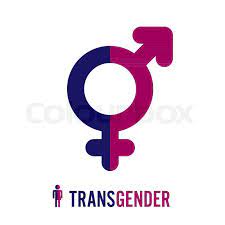Understanding the journey of a post-op transsexual is essential for both individuals who have undergone surgery and their loved ones. The transition can be a profound experience, often filled with a mix of excitement, anxiety, and hope. This article will guide you through various aspects of life after surgery, offering insights into the physical and emotional journey, as well as practical tips for navigating this new chapter.
As society becomes more inclusive, it’s crucial to foster conversations around post-operative care and support. This article will provide a comprehensive overview of what to expect post-surgery, from recovery timelines to emotional changes, helping empower individuals to embrace their true selves fully.Estrogen Pills For Women
Understanding Post-Op Transsexual: What to Expect
Post-op transsexuals are individuals who have undergone gender-affirming surgeries, such as vaginoplasty or phalloplasty, to align their physical appearance with their gender identity. This often marks a significant milestone in their transition, but it’s essential to understand that the journey doesn’t end with surgery. Each person’s experience is unique, influenced by factors like their physical health, emotional readiness, and social support systems.
Expect a range of feelings and changes following surgery. Many people feel relief and joy at finally seeing their bodies reflect their gender identity, while others may experience anxiety or uncertainty about what lies ahead. It’s important to remember that these feelings are entirely normal, and seeking support during this period can help ease the transition.
The Surgery Journey: A Peek into the Process
The process leading up to surgery often involves extensive consultation with healthcare providers, including mental health professionals. Candidates typically undergo a thorough evaluation to ensure they are ready for the physical and emotional changes. This period can be both exciting and nerve-wracking as individuals prepare for a significant life change.
On the day of the surgery, patients are usually greeted by a medical team committed to ensuring their well-being. The procedure itself may vary based on the type of surgery performed, and while it can be daunting, the focus is on achieving the most positive outcome for the patient. Once the surgery is complete, the recovery journey begins, which is an essential phase of the process.
Recovery Timeline: Healing After Surgery
Recovery after gender-affirming surgery can vary significantly from person to person, but generally, it involves several stages. Immediately after surgery, patients may spend a night or two in the hospital for monitoring. During this time, pain management and initial healing are prioritized, with medical staff providing guidance on what to expect in the following days.
As time progresses, the recovery continues at home. It’s important to follow the surgeon’s aftercare instructions closely, which typically include rest, wound care, and avoiding strenuous activities. Most individuals begin to feel more like themselves within a few weeks, but complete healing can take several months. Patience is key during this period, as the body needs time to adjust to the changes.
Emotional Changes: Coping with the Transition
Emotional changes are a natural part of the post-op experience. While many individuals feel a surge of happiness and affirmation, others may encounter feelings of doubt or sadness as they reconcile their physical and emotional selves. This emotional rollercoaster is crucial to acknowledge, as it can impact overall well-being and recovery.
Connecting with a therapist or support group can be incredibly beneficial during this time. Professional guidance can help individuals process their feelings, while support groups offer a sense of community with those who share similar experiences. Remember, it’s okay to seek help and talk about the ups and downs of this journey.
Physical Care: Tips for Post-Op Wellness
Physical care after surgery is vital for a successful recovery. Following your healthcare provider’s instructions regarding wound care, medication, and physical activity is crucial. Staying hydrated and maintaining a balanced diet can significantly aid the healing process, while avoiding alcohol and smoking is recommended to promote recovery.
Incorporating gentle activities, like walking, into your daily routine can help improve circulation and speed up recovery. However, be sure to listen to your body and take breaks when needed. Remember, the goal is to ease back into your normal routine gradually, allowing time for healing.
Social Life: Navigating Relationships Post-Surgery
Post-surgery, many individuals find themselves navigating changes in their social lives. Friends and family may be supportive, but some relationships may also shift or change as individuals embrace their new lives. Open communication is essential; sharing your experiences and feelings can help maintain important connections.
It’s also a great opportunity to establish new relationships within the LGBTQ+ community. Engaging with others who have similar experiences can provide comfort and understanding. Attend events or join groups that celebrate diversity and inclusion, allowing yourself to grow your social circle while fostering meaningful connections.
Support Systems: Finding Your Community
Building a strong support system is vital for post-op individuals. Whether it’s friends, family, or community organizations, surrounding yourself with people who uplift and validate you can make a world of difference. Online forums and local support groups can also provide platforms for sharing experiences and finding camaraderie.
Consider reaching out to local LGBTQ+ centers, which often offer resources, workshops, and events aimed at fostering community. These spaces can be a refuge where you can meet others on similar journeys, share advice, and celebrate life after surgery together.
Celebrating Your Journey: Embracing Your True Self
Celebrating your journey is an important aspect of post-op life. Embrace the milestones you’ve achieved, no matter how big or small. Whether it’s treating yourself to a special outing or sharing your story with others, recognizing your progress can empower you to continue embracing your true self.
As you move forward, remember that this journey is uniquely yours. There will be challenges, but there will also be moments of joy, discovery, and self-acceptance. Take pride in who you are, and allow yourself to enjoy the freedom that comes with living authentically.
The journey of a post-op transsexual is filled with both challenges and triumphs. By understanding what to expect, seeking support, and taking the necessary steps for physical and emotional well-being, individuals can navigate this new chapter with confidence. Embrace your true self, celebrate your milestones, and know that you are not alone in this journey. Remember, every step forward is a victory worth celebrating.

